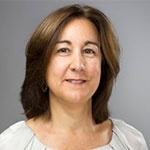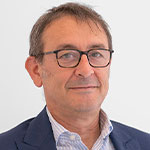Bachelor's Degree in Applied Physics
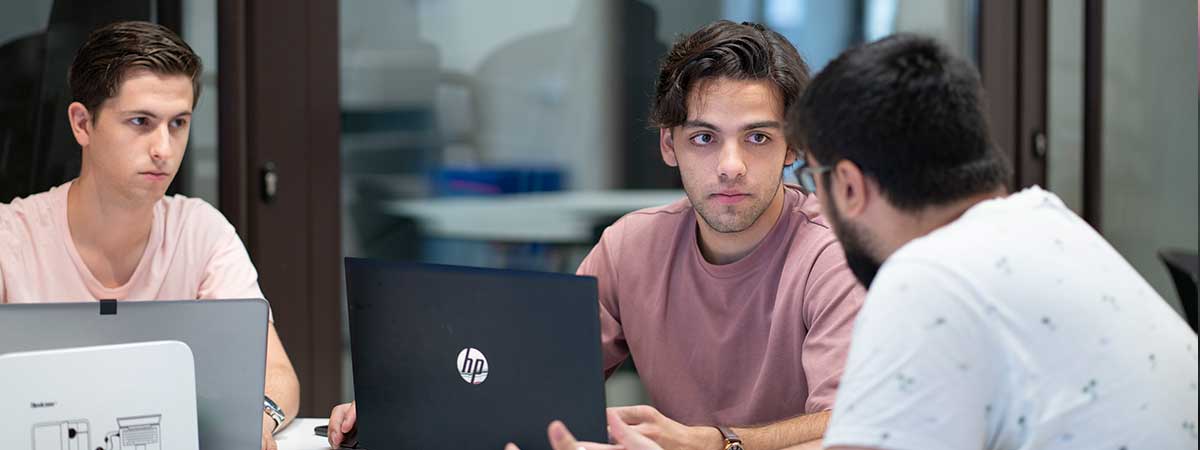
Become the professional that all companies and institutions need
Applied physics is at the heart of society. It forms the basis of many of the products we use in everyday life. If you are passionate about understanding the reasons for natural phenomena and the technologies that surround us, in addition to being able to apply reasoning and physical theory to real projects and practices, this is your Bachelor's degree, and Nebrija University is your destination.
Master quantum computing, artificial intelligence, scientific simulations in aeronautics, nanotechnology, control engineering, econophysics and the development of new medicines. This program includes simulation projects for systems such as aeronautics, the automotive industry, medicine and autonomous machines, thanks to the support of top-level international companies and institutions, which develops a multidisciplinary profile in students, adapted to new tools and market technologies.
The expertise of Spanish graduates in physical disciplines has always been of a very high level and has ensured them an easy insertion into the working world, always tailored to their skills and knowledge. In recent years, more and more physicists have made their contribution, both in the world of basic physics research and in various other scientific fields, in whose development they take part through their methodological contribution: science and environment, industry, computer science, technology, economics, diagnostic research techniques and medical therapy, historical research and conservation techniques in the field of cultural heritage.
Read +This boom in employability is due to the explosion of data science and automation in services and industry that requires profiles with deep scientific-technological knowledge, as well as skills, such as critical analysis, complex problem solving, reasoning, self-learning and use of technology, which are developed by the students of this degree. These skills are among those determined to be of incremental importance and within the “top 15” skills for 2025 by the World Economic Forum in its Future of Jobs Survey 2020.
With just 9.2%, workers trained in natural, chemical, physical and mathematical sciences are among those with the lowest unemployment rate according to 2020 data extracted from the INE's Labor Force Survey (EPA) on the influence of the sector and level of training in the labor market.
In other words, not only does the Physics graduate not have to worry about unemployment, but they find employment in the most varied fields and in all of them their qualities are valuable and appreciated.
Advisory and consultative council
- Manuel Aguilar(CIEMAT researcher, CERN vice president, RAC member)
- Daniel Cortina (Micromag technical director)
- Pedro Miguel Echenique (president of Donostia International Physics Center, RAC member)
- Francisco Guinea (senior researcher at Imdea Nanoscience, National Research Award)
- Antonio Hernando (full professor of magnetism, RAC member, lecturer at Nebrija University)
- Pilar Marín (full professor of Physics of Condensed Matter, director of the IMA)
- Rolf Tarrach (former rector of the University of Luxembourg, former president of CSIC)

With the College of Official Physicists of Madrid (COFIS)
Nebrija University and the Official Association of Physicists of Madrid (COFIS) come together to offer comprehensive and quality training to future graduates in Physics. This is an agreement with the professional association that allows students and graduates to interact with their association from the beginning of their studies. The agreement takes into account mutual academic and professional counsel, exchange of professionals and collaborations in the development of joint projects.
Training in technical applications and professional competences
Curriculum
All our degrees and curricula have been prepared in accordance with the new guidelines set by current legislation, having already been verified by the National Agency for Quality Assessment.
The student must take 240 credits
First year 60 ECTS
Primer Semestre 30 ECTS- 6 ECTS | Fundamentals of Physics I
- 6 ECTS | Calculus I
- 6 ECTS | Linear algebra
- 6 ECTS | Programming
- 6 ECTS | Development of Professional Competences I
Second Semester 30 ECTS- 6 ECTS | Fundamentals of Physics II
- 6 ECTS | Calculus II
- 6 ECTS | Computational Physics I
- 6 ECTS | Experimental Techniques I
- 6 ECTS | Mechanics and Waves
Second year 60 ECTS
First Semester 30 ECTS- 6 ECTS | Differential equations
- 6 ECTS | Electricity and magnetism
- 6 ECTS | Complex variables
- 6 ECTS | Experimental Techniques II
- 6 ECTS | Thermodynamics
Second Semester 30 ECTS- 6 ECTS | Optics
- 6 ECTS | Advanced Mathematical Methods
- 6 ECTS | Analytical Mechanics and Relativity
- 6 ECTS | Electromagnetic Fields and Waves
- 6 ECTS | Development of the Participative and Solidarity Spirit/ Techno-Ethics (EL)
Third year 60 ECTS
First Semester 30 ECTS- 6 ECTS | Statistical Physics
- 6 ECTS | Computational Physics II
- 6 ECTS | Solid-state Physics
- 6 ECTS | Applied Electronics
- 6 ECTS | Quantum physics
Second Semester 30 ECTS- 6 ECTS | Experimental Techniques III
- 6 ECTS | Atomic and Molecular Physics
- 6 ECTS | Materials Physics
- 6 ECTS | Quantum Mechanics and Computing
- 6 ECTS | Development of Professional Competences II
Fourth year 60 ECTS
First Semester 24 ECTS- 6 ECTS | Fluid Physics
- 6 ECTS | Advanced Materials
- 6 ECTS | Dynamic systems
- 6 ECTS | Robotics
- 6 ECTS | Econophysics
- 6 ECTS | Radiophysics
- 6 ECTS | Sources of Energy and Environment
- 6 ECTS | Technological Project Management
Second Semester 24 ECTS- 24 ECTS | Evaluation of the development of skills in the company
Yearly 12 ECTS- 12 ECTS | Final Research Project (FRP)
More information on these subjects
- 6 ECTS |
 Competence Development Seminar I
Competence Development Seminar I - 6 ECTS |
 Competence Development Seminar II
Competence Development Seminar II
The recognition of 6 credits will be arranged according to the different activities that the student carries out throughout his/her degree. They will be awarded for university cultural activities, sports, student representation, solidarity and cooperation, and/or for attending one of the following subjects: Human Rights and Corporate Social Responsibility.
A program whose objective is to favor the practical training of the students, under the continuous supervision of the Department of Professional Careers of the University, the academic department corresponding to the degree and the company or collaborating institution where the internships are carried out. We provide advice on the choice of internships and follow-up and tutoring, always taking the student’s professional orientation into account.
More information on Internships in CompaniesThis project involves the development of research tasks regarding different subjects by the student under the advice of one or several professors of the Department and, occasionally, professionals from the business world. For this, the student has the possibility to choose a project from among those offered.
Nebrija University, which is committed to languages and quality, provides the student with added value with the Diploma in English Professional Communication, which will allow him/her to achieve with confidence the competence demanded to successfully join the labor market.
It corresponds to level C1.
More information hereSpecialization Diplomas from the Higher Polytechnic School
Our program offers the unique opportunity to integrate Specialization Diplomas, enabling students to enhance their education and increase their prospects with leading companies, both nationally and internationally, within their respective sectors.
We deliver our courses in a flexible hybrid format, blending face-to-face and online instruction. This approach allows students to conveniently balance their coursework with their studies.
Professors
| Profesores Professors | Porcentaje de Doctores Percentage of PhD holders |
| 31 | 61% |
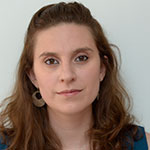 Alia Baroudi Guijarro
Directora del grado en Física Aplicada
Alia Baroudi Guijarro
Directora del grado en Física AplicadaProfesora del área de Física de la Materia Condensada Director of the Bachelor's Degree in Applied Physics
Professor of the area of Condensed Matter Physics Licenciada en Física por la Universidad Autónoma de Madrid y Doctora en Física por la Universidad Complutense de Madrid (UCM), investigando el desarrollo de nuevos materiales para la liberación controlada de diferentes principios activos, con la finalidad de optimizar la presencia de sustancias no biodegradables en el medio ambiente. Ha ampliado su formación con el Máster de Física Biomédica de la UCM y ha sido personal de apoyo a la investigación en la UCM.
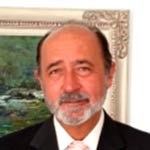 Fernando Aguilar Galindo Ávila
Profesor del área de Competencias Profesionales
Professor of the area of Professional Competences
Fernando es Licenciado en Psicología Clínica por la Universidad de Comillas y posee la Especialidad de Psicología Industrial por la Universidad Complutense, además de ser Especialista en Psicología Aplicada a la Empresa por ICADE. A lo largo de sus 30 años de experiencia profesional, ha desarrollado puestos de Dirección y Gerencia en Compañías multinacionales como Bossard, Gemini Consulting (Cap Gemini) MCC, Soluziona o Indra. En la actualidad posee su propia compañía a través de la cual desarrolla Servicios Profesionales en materia de Recursos Humanos y, formando parte del equipo del Instituto Iñaki Piñuel, acciones como Consejo Psicológico, así como Prevención y Gestión de Riesgos Psicosociales.
Fernando Aguilar Galindo Ávila
Profesor del área de Competencias Profesionales
Professor of the area of Professional Competences
Fernando es Licenciado en Psicología Clínica por la Universidad de Comillas y posee la Especialidad de Psicología Industrial por la Universidad Complutense, además de ser Especialista en Psicología Aplicada a la Empresa por ICADE. A lo largo de sus 30 años de experiencia profesional, ha desarrollado puestos de Dirección y Gerencia en Compañías multinacionales como Bossard, Gemini Consulting (Cap Gemini) MCC, Soluziona o Indra. En la actualidad posee su propia compañía a través de la cual desarrolla Servicios Profesionales en materia de Recursos Humanos y, formando parte del equipo del Instituto Iñaki Piñuel, acciones como Consejo Psicológico, así como Prevención y Gestión de Riesgos Psicosociales.
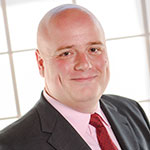 Carlos Aldama Saínz
Profesor de Tecno-Ética
Professor of Techno-Ethics
Ingeniero Superior en Informática por la Universidad Antonio de Nebrija, Ingeniero Técnico en Informática de Sistemas, con más de 25 años de experiencia en el sector, en los que he creado diferentes empresas dentro del sector TIC y realizado labores externas como consultor y auditor (siempre dentro del ámbito tecnológico). Los últimos 15 años los ha enfocado en exclusiva al mundo forense como perito ingeniero en informática, realizando tareas relacionadas con la ciberseguridad y atacando los aspectos más complejos de la informática respecto a cuestiones de fugas de datos, ocultación de identidades, manipulación de información y/o detección de intrusión o exámenes de pruebas falsas aportadas a juzgados. Para estas labores ha creado y coordinado un equipo especializado bajo su propia empresa: Aldama Informática Legal.
Carlos Aldama Saínz
Profesor de Tecno-Ética
Professor of Techno-Ethics
Ingeniero Superior en Informática por la Universidad Antonio de Nebrija, Ingeniero Técnico en Informática de Sistemas, con más de 25 años de experiencia en el sector, en los que he creado diferentes empresas dentro del sector TIC y realizado labores externas como consultor y auditor (siempre dentro del ámbito tecnológico). Los últimos 15 años los ha enfocado en exclusiva al mundo forense como perito ingeniero en informática, realizando tareas relacionadas con la ciberseguridad y atacando los aspectos más complejos de la informática respecto a cuestiones de fugas de datos, ocultación de identidades, manipulación de información y/o detección de intrusión o exámenes de pruebas falsas aportadas a juzgados. Para estas labores ha creado y coordinado un equipo especializado bajo su propia empresa: Aldama Informática Legal.
 Rafael Barea del Cerro
Coordinador del programa de doctorado en Tecnologías Industriales e Informáticas
Rafael Barea del Cerro
Coordinador del programa de doctorado en Tecnologías Industriales e InformáticasProfesor del área de Materiales Coordinator of the PhD program in Industrial and Information Technologies
Professor of the Materials area Doctor por la UAM, Ingeniero de Materiales por la UPM, Licenciado en CC Físicas y Diplomado en Magisterio por la UCM. Especialista universitario en elementos finitos en problemas térmicos por la UNED. Experiencia investigadora durante más de 20 años en diferentes centros del CSIC y en la Universidad Nebrija. Profesor titular por la ANECA, posee tres sexenios de investigación. Especialidades: procesamiento y caracterización de materiales cerámicos y metálicos, en modelos matemáticos y simulación (redes neuronales, lógica difusa, inteligencia artificial, elementos finitos, modelización de propiedades no lineales de materiales...). Actualmente trabajando en el área de fabricación aditiva en inoxidables, en propiedades mecánicas de aleaciones de magnesio y electromagnéticas de perovskitas con orientación a la fabricación de piezas y sensores de la industria del transporte (aviones, trenes, barcos y automóviles).
 Álvaro Bustinduy Candela
Vicerrector de investigación
Álvaro Bustinduy Candela
Vicerrector de investigaciónProfesor del área de Matemáticas Vice-Rector for Research
Professor of Mathematics Doctor en Ciencias Matemáticas por la UCM. Acreditado como Profesor Titular y como Profesor Doctor de Universidad Privada. Mantiene líneas de investigación en el campo de las Ecuaciones Diferenciales y los Sistemas Dinámicos Complejos. Ha publicado trabajos de investigación en revistas matemáticas internacionales. Ha impartido conferencias en congresos internacionales. Participa en varios proyectos de investigación y colabora con investigadores de la UCM y Universidad Nacional Autónoma de México. En cuanto a su actividad docente, ha impartido en la Escuela Politécnica Superior de la Universidad Antonio de Nebrija desde el curso 2003-04 hasta la actualidad diferentes asignaturas a todos los niveles (primer y segundo ciclo, doctorado) del área de matemáticas y la programación, incluidas asignaturas de diferentes titulaciones del campo de la Ingeniería Informática. Actualmente compagina su actividad docente e investigadora con el cargo de Vicerrector de Investigación de la Universidad.
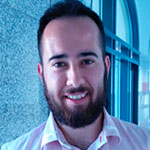 Roberto Campos Ortiz
Profesor del área de Fundamentos de la Física
Professor of the area of Fundamentals of Physics
Doctorando en Computación Cuántica por la Universidad Complutense de Madrid. Graduado en Ingeniería Informática, Máster en Ciencias y Tecnología Informática por la Universidad Carlos III de Madrid. Trabajó en investigación en Inteligencia Artificial en el grupo de Planificación y Aprendizaje (PLG) de la Universidad Carlos III y como Ingeniero de Software para la Agencia Espacial Europea. Su campo de investigación es el desarrollo de algoritmos híbridos clásico-cuánticos centrados en optimización e Inteligencia Artificial Cuántica. Durante el doctorado ha realizado colaboraciones con empresas internacionales de Computación Cuántica. Ha sido profesor de informática clásica escribiendo cursos de Inteligencia Artificial para diferentes universidades y organismos.
Roberto Campos Ortiz
Profesor del área de Fundamentos de la Física
Professor of the area of Fundamentals of Physics
Doctorando en Computación Cuántica por la Universidad Complutense de Madrid. Graduado en Ingeniería Informática, Máster en Ciencias y Tecnología Informática por la Universidad Carlos III de Madrid. Trabajó en investigación en Inteligencia Artificial en el grupo de Planificación y Aprendizaje (PLG) de la Universidad Carlos III y como Ingeniero de Software para la Agencia Espacial Europea. Su campo de investigación es el desarrollo de algoritmos híbridos clásico-cuánticos centrados en optimización e Inteligencia Artificial Cuántica. Durante el doctorado ha realizado colaboraciones con empresas internacionales de Computación Cuántica. Ha sido profesor de informática clásica escribiendo cursos de Inteligencia Artificial para diferentes universidades y organismos.
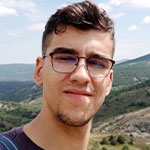 Alberto Castellano Soria
Profesor del área de Técnicas experimentales
Professor of the Experimental Techniques area
Doctor en Física por la Universidad Complutense de Madrid, tras haber completado un Máster en Nano física y Materiales Avanzados y ser graduado en Ciencias Físicas con especialidad en Física Fundamental en la misma universidad. Desarrolló su tesis en el Instituto de Magnetismo Aplicado (IMA) como personal de apoyo a la investigación. Sus áreas de conocimiento se centran en la caracterización de nanomateriales, la síntesis de composites basados en nanopartículas metálicas y magnéticas, y el electromagnetismo aplicado a tecnologías radar y sistemas de absorción electromagnética. Además, ha participado en proyectos internacionales con clientes como el Banco Central Europeo (BCE) a través de la empresa Micromag.
Alberto Castellano Soria
Profesor del área de Técnicas experimentales
Professor of the Experimental Techniques area
Doctor en Física por la Universidad Complutense de Madrid, tras haber completado un Máster en Nano física y Materiales Avanzados y ser graduado en Ciencias Físicas con especialidad en Física Fundamental en la misma universidad. Desarrolló su tesis en el Instituto de Magnetismo Aplicado (IMA) como personal de apoyo a la investigación. Sus áreas de conocimiento se centran en la caracterización de nanomateriales, la síntesis de composites basados en nanopartículas metálicas y magnéticas, y el electromagnetismo aplicado a tecnologías radar y sistemas de absorción electromagnética. Además, ha participado en proyectos internacionales con clientes como el Banco Central Europeo (BCE) a través de la empresa Micromag.
 Gerardo Conejero Ortega
Profesor del área de Fundamentos de la Física
Professor of the area of Fundamentals of Physics
Doctor en Diseño Industrial por la Universidad Antonio de Nebrija. Ingeniero de Materiales por la Universidad Complutense de Madrid. Profesor asociado en la Universidad Nebrija desde el año 2005 en diversas asignaturas, tanto en su parte teórica como práctica. Ha compaginado su labor docente con labores de investigación y publicaciones en el campo de los materiales (aleaciones de aceros de conformado enriquecidos con nitruros de Nb), en la Universidad Nebrija y con el CENIM. Actualmente se encuentra iniciando temas de investigación en el campo de la dinámica de sistemas para autoconsumo de energías renovables y para aplicaciones didácticas.
Gerardo Conejero Ortega
Profesor del área de Fundamentos de la Física
Professor of the area of Fundamentals of Physics
Doctor en Diseño Industrial por la Universidad Antonio de Nebrija. Ingeniero de Materiales por la Universidad Complutense de Madrid. Profesor asociado en la Universidad Nebrija desde el año 2005 en diversas asignaturas, tanto en su parte teórica como práctica. Ha compaginado su labor docente con labores de investigación y publicaciones en el campo de los materiales (aleaciones de aceros de conformado enriquecidos con nitruros de Nb), en la Universidad Nebrija y con el CENIM. Actualmente se encuentra iniciando temas de investigación en el campo de la dinámica de sistemas para autoconsumo de energías renovables y para aplicaciones didácticas.
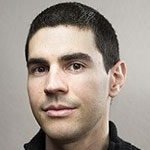 Omar Díaz Luque
Profesor del área de Fundamentos de la Física
Professor of the Fundamentals of Physics area
Doctor en Tecnologías Industriales e Informáticas por la Universidad Antonio de Nebrija. Graduado en Ciencias Físicas por la Universidad Complutense de Madrid, en la especialidad de Física Aplicada. Máster en Nanofísica y Materiales Avanzados por dicha universidad. Ha realizado diversas colaboraciones en actividades y proyectos científicos con la Universidad Complutense, el Instituto de Magnetismo Aplicado y la Universidad Antonio de Nebrija. Profesor asociado en la Escuela Politécnica Superior de la Universidad Nebrija.
Omar Díaz Luque
Profesor del área de Fundamentos de la Física
Professor of the Fundamentals of Physics area
Doctor en Tecnologías Industriales e Informáticas por la Universidad Antonio de Nebrija. Graduado en Ciencias Físicas por la Universidad Complutense de Madrid, en la especialidad de Física Aplicada. Máster en Nanofísica y Materiales Avanzados por dicha universidad. Ha realizado diversas colaboraciones en actividades y proyectos científicos con la Universidad Complutense, el Instituto de Magnetismo Aplicado y la Universidad Antonio de Nebrija. Profesor asociado en la Escuela Politécnica Superior de la Universidad Nebrija.
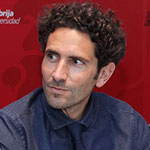 David de la Fuente Franco
Profesor del área de Desarrollo del espíritu participativo y solidario
Professor in the area of Development of the participatory and supportive spirit
Graduado en Educación Física por la Universidad Complutense de Madrid y Máster Universitario en Gestión Deportiva por la Universidad de Valencia. Está cursando el doctorado y su ámbito de investigación son las Empresas Saludables. Su trayectoria ha estado siempre ligada al mundo del deporte; en un primer momento en el ámbito escolar, pasando por la gestión municipal de instalaciones deportivas y acabando en la educación superior universitaria. Es director del Servicio de Deportes, Clubes y Bienestar de la Universidad Nebrija (Madrid) desde 2005, miembro permanente del Comité Madrileño de Deporte Universitario (COMADU) y del Comité Español de Deporte Universitario (CEDU), así como Asesor Técnico de diferentes modalidades deportivas para el Observatorio de Deporte Universitario de la Comunidad de Madrid. Forma parte del Comité Organizador de los Campeonatos Universitarios de la Comunidad de Madrid y de los Campeonatos Universitarios de España. Dirige el Programa Saludable de Actividad Física y Deporte para empleados de la Universidad Nebrija.
David de la Fuente Franco
Profesor del área de Desarrollo del espíritu participativo y solidario
Professor in the area of Development of the participatory and supportive spirit
Graduado en Educación Física por la Universidad Complutense de Madrid y Máster Universitario en Gestión Deportiva por la Universidad de Valencia. Está cursando el doctorado y su ámbito de investigación son las Empresas Saludables. Su trayectoria ha estado siempre ligada al mundo del deporte; en un primer momento en el ámbito escolar, pasando por la gestión municipal de instalaciones deportivas y acabando en la educación superior universitaria. Es director del Servicio de Deportes, Clubes y Bienestar de la Universidad Nebrija (Madrid) desde 2005, miembro permanente del Comité Madrileño de Deporte Universitario (COMADU) y del Comité Español de Deporte Universitario (CEDU), así como Asesor Técnico de diferentes modalidades deportivas para el Observatorio de Deporte Universitario de la Comunidad de Madrid. Forma parte del Comité Organizador de los Campeonatos Universitarios de la Comunidad de Madrid y de los Campeonatos Universitarios de España. Dirige el Programa Saludable de Actividad Física y Deporte para empleados de la Universidad Nebrija.
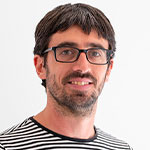 Diego de Pereda Sebastián
Profesor del área de Matemáticas
Diego de Pereda Sebastián
Profesor del área de MatemáticasTutor de prácticas externas Professor of the area of Mathematics
Internship Tutor Profesor Doctor en Matemáticas por la Universidad Politécnica de Valencia, investigando sobre el tratamiento de la incertidumbre y la variabilidad aplicado al desarrollo de un páncreas artificial para pacientes con diabetes tipo I. Está acreditado y es licenciado en Matemáticas por la Universidad Autónoma de Madrid. Máster en Investigación Matemática por la Universidad Complutense de Madrid. Ha trabajado como analista estadístico de series temporales para la optimización de recursos (Business Inteligence). También ha trabajado como de investigador bioinformático en el modelado del funcionamiento del sistema inmune mediante algoritmos de inteligencia artificial y métodos estadísticos.
 Raúl Felipe Sosa
Profesor de la asignatura Sistemas dinámicos
Raúl Felipe Sosa
Profesor de la asignatura Sistemas dinámicosCoordinador de Trabajos Fin de Grado Professor of the subject Dynamic Systems
Final Degree Project Coordinator Doctor en Matemáticas Aplicadas por el Centro de Investigación en Matemáticas (CIMAT) de México y licenciado en Matemáticas por la Universidad de La Habana. Ha desarrollado su labor docente e investigadora en instituciones de Cuba, México y España, como la Universidad de La Habana, la Universidad Autónoma de Puebla, la Universidad Autónoma de Chiapas y la Universidad Carlos III de Madrid. Su trayectoria combina una sólida formación teórica con la aplicación de modelos matemáticos al estudio de fenómenos complejos en cardiología, neurociencia y epidemiología. Ha participado como investigador en proyectos internacionales de modelación matemática, en colaboración con instituciones de México, Francia y España, destacando el grupo CARMEN del INRIA-Bordeaux. Su producción científica incluye más de una decena de artículos en revistas indexadas como Mathematical Modelling of Natural Phenomena, Quantum Information Processing y Acta Applicandae Mathematicae, así como la coautoría de un libro sobre modelos matemáticos aplicados a la COVID-19. Sus intereses de investigación se centran en ecuaciones diferenciales, análisis funcional —lineal y no lineal—, teoría de operadores, modelación de medios elásticos compuestos y aprendizaje automático, con especial atención a la integración de modelos físicos en arquitecturas de redes neuronales profundas. En este marco, se ha interesado recientemente por la formulación de funciones de activación basadas en soluciones de sistemas dinámicos y por el uso de espacios de Banach con núcleo de reproducción como fundamento teórico para el estudio de los modelos de aprendizaje profundo. Es miembro del Sistema Nacional de Investigadores de México con la distinción Nivel I.
 Miguel Ángel García García-Tuñón
Director de TFG
TFG Director
Doctorado en Física en 1999 en la Universidad Complutense de Madrid. Actualmente es científico permanente en el ICV. Anteriormente trabajó en la Universidad de Padua (Italia), el Instituto de Magnetismo Aplicado (España), el Instituto de Ciencia de Materiales de Madrid (España) y la Universidad Complutense de Madrid. También ha realizado estancias como profesor visitante en el European Synchrotron Radiation Facility (Grenoble, Francia) y en el Argonne National Laboratory (EE. UU.). La mayor parte de su trabajo está dedicado al estudio de la resonancia de plasmones superficiales y propiedades magnéticas. En los últimos años, se ha enfocado en el efecto de acoplamiento entre diferentes propiedades en nano-sistemas híbridos que contienen distintos elementos, como componentes magnéticos y plasmónicos. Una parte significativa de su labor se dedica al desarrollo de nueva instrumentación para medir efectos a escala nanométrica y estudiar la interrelación entre propiedades ópticas, magnéticas, eléctricas y mecánicas. Es coautor de más de 160 artículos científicos (Índice h = 40, ResearcherID en Web of Science: N-3043-2016) y 15 patentes, y ha sido investigador principal en 16 proyectos de investigación. También ha dirigido 6 tesis doctorales. Imparte docencia como colaborador honorífico en la Universidad Complutense de Madrid y en la Universidad Autónoma de Madrid.
Miguel Ángel García García-Tuñón
Director de TFG
TFG Director
Doctorado en Física en 1999 en la Universidad Complutense de Madrid. Actualmente es científico permanente en el ICV. Anteriormente trabajó en la Universidad de Padua (Italia), el Instituto de Magnetismo Aplicado (España), el Instituto de Ciencia de Materiales de Madrid (España) y la Universidad Complutense de Madrid. También ha realizado estancias como profesor visitante en el European Synchrotron Radiation Facility (Grenoble, Francia) y en el Argonne National Laboratory (EE. UU.). La mayor parte de su trabajo está dedicado al estudio de la resonancia de plasmones superficiales y propiedades magnéticas. En los últimos años, se ha enfocado en el efecto de acoplamiento entre diferentes propiedades en nano-sistemas híbridos que contienen distintos elementos, como componentes magnéticos y plasmónicos. Una parte significativa de su labor se dedica al desarrollo de nueva instrumentación para medir efectos a escala nanométrica y estudiar la interrelación entre propiedades ópticas, magnéticas, eléctricas y mecánicas. Es coautor de más de 160 artículos científicos (Índice h = 40, ResearcherID en Web of Science: N-3043-2016) y 15 patentes, y ha sido investigador principal en 16 proyectos de investigación. También ha dirigido 6 tesis doctorales. Imparte docencia como colaborador honorífico en la Universidad Complutense de Madrid y en la Universidad Autónoma de Madrid.
 Alfonso García Gómez
Profesor del área de Fundamentos de Física
Professor in the area of Fundamentals of Physics
Licenciado en Física por la Universidad Autónoma de Madrid (UAM), Máster en Nanociencia y Doctor en Física de Nanoestructuras y Materiales Avanzados por la Universidad del País Vasco UPV/EHU. Su carrera investigadora se inició en el CIC Nanogune en el grupo CIC-09 Nanoimaging en el que colaboró en el estudio del efecto de las impurezas magnéticas en superficies superconductoras y desarrolló sensores de radiofrecuencia para STMs. Después, continuó durante el doctorado en el que estudió el efecto de estímulos externos en microhilos magnéticos amorfos recubiertos de vidrio para su aplicación en la industria 4.0.
Alfonso García Gómez
Profesor del área de Fundamentos de Física
Professor in the area of Fundamentals of Physics
Licenciado en Física por la Universidad Autónoma de Madrid (UAM), Máster en Nanociencia y Doctor en Física de Nanoestructuras y Materiales Avanzados por la Universidad del País Vasco UPV/EHU. Su carrera investigadora se inició en el CIC Nanogune en el grupo CIC-09 Nanoimaging en el que colaboró en el estudio del efecto de las impurezas magnéticas en superficies superconductoras y desarrolló sensores de radiofrecuencia para STMs. Después, continuó durante el doctorado en el que estudió el efecto de estímulos externos en microhilos magnéticos amorfos recubiertos de vidrio para su aplicación en la industria 4.0.
 Alba García Usón
Profesora del área de Física Aplicada
Professor of Applied Physics
Ingeniera Mecatrónica por la Universidad de Zaragoza, cursando el Máster en Ingeniería Electrónica en la misma institución. Ha desarrollado su trayectoria profesional en el ámbito de la I+D en electrónica, participando en proyectos de hardware y firmware con microcontroladores, diseño de PCBs y soluciones de automatización industrial. Cuenta con experiencia en entornos de producción electrónica y en el desarrollo de prototipos para instrumentación y control. Actualmente, imparte formación en Salesianos Atocha en los grados de Mantenimiento Electrónico y de Automatización y Robótica Industrial.
Alba García Usón
Profesora del área de Física Aplicada
Professor of Applied Physics
Ingeniera Mecatrónica por la Universidad de Zaragoza, cursando el Máster en Ingeniería Electrónica en la misma institución. Ha desarrollado su trayectoria profesional en el ámbito de la I+D en electrónica, participando en proyectos de hardware y firmware con microcontroladores, diseño de PCBs y soluciones de automatización industrial. Cuenta con experiencia en entornos de producción electrónica y en el desarrollo de prototipos para instrumentación y control. Actualmente, imparte formación en Salesianos Atocha en los grados de Mantenimiento Electrónico y de Automatización y Robótica Industrial.
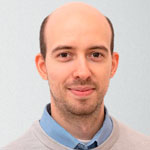 Daniel Gómez Lendínez
Director de TFG
TFG Director
Doctor en Mecánica de fluidos por la Universidad Carlos III de Madrid. Graduado en Ingeniería Mecánica bilingüe y Máster en Mecánica industrial por la Universidad Carlos III de Madrid. Experiencia de cuatro años en cálculo estructural, fluido y térmico en sector de la automoción y nuclear en Innomerics como ingeniero y responsable de proyecto. Co-fundador y co-responsable del equipo de Formula Student de la Universidad Carlos III de Madrid durante siete años. Profesor de Mecánica de fluidos, simulación numérica e instalaciones hidráulicas durante cinco años en la Universidad Carlos III de Madrid. Profesor de aerodinámica durante dos años en la Universidad Francisco de Vitoria. Profesor de la Universidad Nebrija desde 2022. Su tesis versó sobre estabilidad de chorros de baja densidad y llamas de difusión.
Daniel Gómez Lendínez
Director de TFG
TFG Director
Doctor en Mecánica de fluidos por la Universidad Carlos III de Madrid. Graduado en Ingeniería Mecánica bilingüe y Máster en Mecánica industrial por la Universidad Carlos III de Madrid. Experiencia de cuatro años en cálculo estructural, fluido y térmico en sector de la automoción y nuclear en Innomerics como ingeniero y responsable de proyecto. Co-fundador y co-responsable del equipo de Formula Student de la Universidad Carlos III de Madrid durante siete años. Profesor de Mecánica de fluidos, simulación numérica e instalaciones hidráulicas durante cinco años en la Universidad Carlos III de Madrid. Profesor de aerodinámica durante dos años en la Universidad Francisco de Vitoria. Profesor de la Universidad Nebrija desde 2022. Su tesis versó sobre estabilidad de chorros de baja densidad y llamas de difusión.
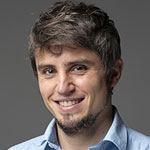 Carlos Gumiel Vindel
Vicedecano de investigación de la EPS
Carlos Gumiel Vindel
Vicedecano de investigación de la EPSProfesor del área de Física de la materia condensada Vice Dean of Research at the EPS
Professor of the area of Condensed Matter Physics Doctor por la Universidad Politécnica de Madrid y Licenciado en Ciencias Químicas por la Universidad Complutense de Madrid, con un Máster en Nanociencia y Nanomateriales expedido por la misma universidad. Cuenta con más de diez años de experiencia investigadora desarrollada en colaboración con el Instituto de Cerámica y Vidrio del CSIC, centrada en la fabricación y el procesamiento sostenible de nanomateriales cerámicos para su aplicación en electrónica y energía. A nivel internacional, cuenta con una estancia de investigación en la Universidad de Hasselt (Bélgica) y ha sido Profesor Visitante en la Universidad de Limerick (Irlanda) y en la Universidad de Módena y Reggio Emilia (Italia). Forma parte del Comité Organizador y Científico del congreso bienal de "Electrocerámica" y es secretario de la sección "Cerámicas para Energía y Electrónica" de la Sociedad Española de Cerámica y Vidrio. Fue galardonado con el Primer Premio a la mejor ponencia en el Congreso Internacional "The 7th Global Conference on Materials Science and Engineering”, celebrado en Xian (China) en el 2018, y con el 2º Premio en el V Concurso de Divulgación Científica de la Universidad Complutense de Madrid por el Proyecto de Innovación y Mejora de la Calidad Docente en el 2014. Está acreditado a las figuras de Profesor Contratado Doctor, Profesor de Universidad Privada y Profesor Titular de Universidad por la ANECA. En el ámbito docente, lleva impartiendo docencia desde el año 2013, habiendo sido Profesor Colaborador en la Universidad Complutense de Madrid y en la Universidad Politécnica de Madrid, respectivamente. Además, fue Profesor Asociado en el Dpto. de Ciencia e Ingeniería de Materiales e Ingeniería Química de la Universidad Carlos III de Madrid entre el 2019 y el 2023.
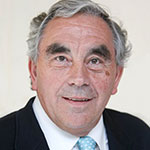 Antonio Hernando Grande
Profesor magistral Nebrija
Antonio Hernando Grande
Profesor magistral NebrijaProfesor del área de Magnetismo Masterly Professor Nebrija
Professor of the area of Magnetism Catedrático de Magnetismo de la Materia en la Universidad Complutense de Madrid desde 1980 y Director del Instituto de Magnetismo Aplicado de la misma universidad. Es autor de aproximadamente trescientas publicaciones científicas, de diecisiete patentes y director de veintidós tesis doctorales. Sus publicaciones tienen más de 16000 referencias con un índice H=61. Ha sido Investigador en Naval Research Lab. en Washington y Profesor invitado en la Universidad Técnica de Dinamarca, en la Universidad de Cambridge y en el Instituto Max-Planck de Stuttgart. Académico Numerario de la Real Academia de Ciencias Exactas, Físicas y Naturales; Doctor Honoris Causa por la Universidad del País Vasco; Doctor Honoris Causa por la Universidad de Cantabria. Medalla de Oro de la Real Sociedad Española de Física; Premio de Investigación Miguel Catalán de la Comunidad de Madrid; Fellow de la American Physical Society; Premio Dupont de la Ciencia; y Premio Nacional de Investigación. Ha sido Vice-chairman de la Comisión de Magnetismo de la IUPAP, Editor del Journal of Physics C . Condensed Matter. Presidente de la Soft Magnetic Material Conference. Editor de Biosensors Journal.
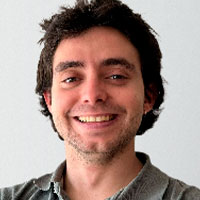 Pablo Lobato de la Cruz
Profesor del área de Matemáticas
Professor of the area of Mathematics
Graduado en Matemáticas en la especialidad de ciencias de la computación, por la Universidad Complutense de Madrid. En su trabajo de fin de grado analizó la eficiencia y corrección de un algoritmo cuántico de sistemas de recomendación. Actualmente está aplicando sus conocimientos matemáticos en Repsol.
Pablo Lobato de la Cruz
Profesor del área de Matemáticas
Professor of the area of Mathematics
Graduado en Matemáticas en la especialidad de ciencias de la computación, por la Universidad Complutense de Madrid. En su trabajo de fin de grado analizó la eficiencia y corrección de un algoritmo cuántico de sistemas de recomendación. Actualmente está aplicando sus conocimientos matemáticos en Repsol.
 Sonnia Lopez Silva
Profesora del área de Física de la Materia Condensada
Professor of the area of Condensed Matter Physics
Doctora en Ciencias Físicas por la Universidad Complutense de Madrid. Profesora acreditada por ACAP en las figuras de profesora contratada doctora y profesora de universidad privada. Ha imprtido docencia en diversas universidades incluidas la Universidad de Las Palmas de Gran Canaria y la Universidad Pontifica de Comillas. Ha sido investigadora del Programa Ramón y Cajal y del subprograma Torres Quevedo. Ha desarrollado si labora investigadora en centros públicos y privados, incluidos el Instituto Universitario de Microelectrónica Aplicada (IUMA) o el Instituto de Microelectrónica de Madrid (IMM-CSIC). HJa participado en 15 proyectos de investigación y dispone de múltiples investigaciones y una patente. Sus líneas de investigación incluyen el uso de la optoelectrónica en aplicaciones sanitarias y deportivas.
Sonnia Lopez Silva
Profesora del área de Física de la Materia Condensada
Professor of the area of Condensed Matter Physics
Doctora en Ciencias Físicas por la Universidad Complutense de Madrid. Profesora acreditada por ACAP en las figuras de profesora contratada doctora y profesora de universidad privada. Ha imprtido docencia en diversas universidades incluidas la Universidad de Las Palmas de Gran Canaria y la Universidad Pontifica de Comillas. Ha sido investigadora del Programa Ramón y Cajal y del subprograma Torres Quevedo. Ha desarrollado si labora investigadora en centros públicos y privados, incluidos el Instituto Universitario de Microelectrónica Aplicada (IUMA) o el Instituto de Microelectrónica de Madrid (IMM-CSIC). HJa participado en 15 proyectos de investigación y dispone de múltiples investigaciones y una patente. Sus líneas de investigación incluyen el uso de la optoelectrónica en aplicaciones sanitarias y deportivas.
 Danilo Magistrali
Profesor del área de Matemáticas Aplicadas
Professor of the area of Applied Mathematics
Doctor por la Universidad Complutense de Madrid. Licenciado en Físico - Química, DEA en Física. Desde el 2005 imparte asignaturas de matemáticas en Ingeniería, ADE, Arquitectura en varias universidades: UPM, UC3M, UPNA, UPCO, Nebrija. Ha publicado libros y cuadernos de apoyo a la docencia en el ámbito de la matemática aplicada y de la historia de la ciencia.
Danilo Magistrali
Profesor del área de Matemáticas Aplicadas
Professor of the area of Applied Mathematics
Doctor por la Universidad Complutense de Madrid. Licenciado en Físico - Química, DEA en Física. Desde el 2005 imparte asignaturas de matemáticas en Ingeniería, ADE, Arquitectura en varias universidades: UPM, UC3M, UPNA, UPCO, Nebrija. Ha publicado libros y cuadernos de apoyo a la docencia en el ámbito de la matemática aplicada y de la historia de la ciencia.
 Andrea Manzaneque Nieto
Profesora de las áreas de Matemáticas Aplicadas y de Fundamentos de la Física y de Física Teórica
Professor of Applied Mathematics and Fundamentals of Physics and Theoretical Physics
Graduada en Ciencias Físicas por la Universidad Complutense de Madrid en la modalidad de física fundamental. Máster interuniversitario en Física Nuclear. Desarrolló su Trabajo de Fin de Máster en la UCM en colaboración con la Universidad de Granada realizando simulaciones Monte Carlo para tratamientos de radioterapia con distintos modelos matemáticos de crecimiento y supervivencia celular. Ha tenido contacto con la radiofísica hospitalaria en el Hospital Gregorio Marañón durante el periodo de prácticas universitario. Así mismo, posee dos años de experiencia docente impartida en academia a nivel universitario.
Andrea Manzaneque Nieto
Profesora de las áreas de Matemáticas Aplicadas y de Fundamentos de la Física y de Física Teórica
Professor of Applied Mathematics and Fundamentals of Physics and Theoretical Physics
Graduada en Ciencias Físicas por la Universidad Complutense de Madrid en la modalidad de física fundamental. Máster interuniversitario en Física Nuclear. Desarrolló su Trabajo de Fin de Máster en la UCM en colaboración con la Universidad de Granada realizando simulaciones Monte Carlo para tratamientos de radioterapia con distintos modelos matemáticos de crecimiento y supervivencia celular. Ha tenido contacto con la radiofísica hospitalaria en el Hospital Gregorio Marañón durante el periodo de prácticas universitario. Así mismo, posee dos años de experiencia docente impartida en academia a nivel universitario.
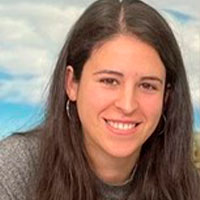 Carolina Martín Rubio
Profesora del área de Computación
Professor of Computing
Doctora en Ciencias Físicas por la Universidad Complutense de Madrid, donde también obtuvo el grado en Ciencias Físicas y el Máster en Meteorología y Geofísica. Inició su investigación en el Instituto Nacional de Técnica Aeroespacial, donde caracterizó materiales para exploración espacial y desarrolló software específico para la calibración del sensor magnético AMR (misión Exomars2022). Realizó su tesis doctoral en el Centro de Astrobiología (INTA-CSIC), estudiando la dinámica y ocurrencia de tormentas de polvo en Marte a partir de datos satelitales. Formó parte del equipo de la misión Mars2020 de la NASA, operando el instrumento MEDA a bordo del rover Perseverance. Actualmente es Científica Superior en el INTA, donde realiza la explotación de datos científicos de instrumentos para la caracterización atmosférica y superficial de planetas y desarrolla software específico para misiones espaciales.
Carolina Martín Rubio
Profesora del área de Computación
Professor of Computing
Doctora en Ciencias Físicas por la Universidad Complutense de Madrid, donde también obtuvo el grado en Ciencias Físicas y el Máster en Meteorología y Geofísica. Inició su investigación en el Instituto Nacional de Técnica Aeroespacial, donde caracterizó materiales para exploración espacial y desarrolló software específico para la calibración del sensor magnético AMR (misión Exomars2022). Realizó su tesis doctoral en el Centro de Astrobiología (INTA-CSIC), estudiando la dinámica y ocurrencia de tormentas de polvo en Marte a partir de datos satelitales. Formó parte del equipo de la misión Mars2020 de la NASA, operando el instrumento MEDA a bordo del rover Perseverance. Actualmente es Científica Superior en el INTA, donde realiza la explotación de datos científicos de instrumentos para la caracterización atmosférica y superficial de planetas y desarrolla software específico para misiones espaciales.
 Gema Martínez Esteve
Profesora del área Física de la materia condensada
Professor of Condensed Matter Physics
Graduada en Ingeniería Aeroespacial por la Universidad Politécnica de Valencia, y en el máster en Ciencia y Tecnología desde el Espacio por la Universidad de Alcalá. Se inició en investigación en el Centro de Astrobiología, donde se encuentra finalizando su tesis doctoral, centrada en Dinámica Computacional de Fluidos para la caracterización del flujo alrededor del rover Perseverance para la misión Mars 2020 de NASA. También ha trabajado en ensayos en túnel de viento bajo condiciones marcianas, y fue miembro de la misión Mars Science Laboratory de NASA, en la que fue operadora del instrumento REMS a bordo del rover Curiosity. Actualmente es Científica Superior en el Instituto Nacional de Técnica Aeroespacial, dedicada al análisis aerodinámico y estructural en proyectos espaciales.
Gema Martínez Esteve
Profesora del área Física de la materia condensada
Professor of Condensed Matter Physics
Graduada en Ingeniería Aeroespacial por la Universidad Politécnica de Valencia, y en el máster en Ciencia y Tecnología desde el Espacio por la Universidad de Alcalá. Se inició en investigación en el Centro de Astrobiología, donde se encuentra finalizando su tesis doctoral, centrada en Dinámica Computacional de Fluidos para la caracterización del flujo alrededor del rover Perseverance para la misión Mars 2020 de NASA. También ha trabajado en ensayos en túnel de viento bajo condiciones marcianas, y fue miembro de la misión Mars Science Laboratory de NASA, en la que fue operadora del instrumento REMS a bordo del rover Curiosity. Actualmente es Científica Superior en el Instituto Nacional de Técnica Aeroespacial, dedicada al análisis aerodinámico y estructural en proyectos espaciales.
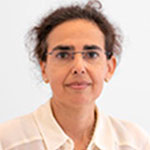 Carolina Andrea Mendoza Parra
Profesora del área de Física Computacional
Professor of the area of Computational Physics
Doctora por la Universidad de Navarra. Actualmente trabaja en flujos geofísicos en océanos y atmósfera. En particular, en el desarrollo de descriptores Lagrangianos para localizar estructuras coherentes en la superficie del Mar mediante datos satelitales. Acreditada como Profesor titular. Ha realizado estancias post-doctorales en el Instituto Nazionalle di Ottica (Florencia) Italia trabajando en sincronización de cadenas de osciladores, en el Instituto Max-Planck de Sistemas Complejos (Dresde)-Alemania y como profesor visitante en la Facultad de Earth, Ocean, & Environment de la Universidad de Delaware.
Carolina Andrea Mendoza Parra
Profesora del área de Física Computacional
Professor of the area of Computational Physics
Doctora por la Universidad de Navarra. Actualmente trabaja en flujos geofísicos en océanos y atmósfera. En particular, en el desarrollo de descriptores Lagrangianos para localizar estructuras coherentes en la superficie del Mar mediante datos satelitales. Acreditada como Profesor titular. Ha realizado estancias post-doctorales en el Instituto Nazionalle di Ottica (Florencia) Italia trabajando en sincronización de cadenas de osciladores, en el Instituto Max-Planck de Sistemas Complejos (Dresde)-Alemania y como profesor visitante en la Facultad de Earth, Ocean, & Environment de la Universidad de Delaware.
 Alejandro Olmos Montero
Profesor del área Fundamentos de la Física
Professor of the Fundamentals of Physics area
Graduado en Ciencias Físicas por la Universidad Complutense de Madrid en la modalidad de física fundamental. Máster interuniversitario en Banca y Finanzas Cuantitativas. Desarrolló su Trabajo de Fin de Máster en la UCM en colaboración con École Supérieure d’Ingénieurs Léonard de Vinci de París realizando la valoración de derivados con el uso de análisis armónico. Actualmente trabaja en el Banco Santander en el área de validación interna de modelos de riesgos.
Alejandro Olmos Montero
Profesor del área Fundamentos de la Física
Professor of the Fundamentals of Physics area
Graduado en Ciencias Físicas por la Universidad Complutense de Madrid en la modalidad de física fundamental. Máster interuniversitario en Banca y Finanzas Cuantitativas. Desarrolló su Trabajo de Fin de Máster en la UCM en colaboración con École Supérieure d’Ingénieurs Léonard de Vinci de París realizando la valoración de derivados con el uso de análisis armónico. Actualmente trabaja en el Banco Santander en el área de validación interna de modelos de riesgos.
 Iñaki Ortiz de Landaluce
Profesor del área Mecánica y Electromagnetismo
Professor of area of Mechanics and Electromagnetism
Licenciado en Ciencias Físicas por la Universidad Complutense de Madrid con la especialidad de Astronomía y Astrofísica, y un Posgrado en Ingeniería Cuántica por la Universitat Politècnica de Catalunya. Cuenta con una trayectoria profesional de más de dos décadas en el ámbito científico-tecnológico, desarrollada fundamentalmente en la Agencia Espacial Europea (ESA), donde ha participado en el diseño y desarrollo de software científico, así como en sistemas de procesamiento de datos y planificación de operaciones científicas para misiones espaciales de astronomía y exploración del Sistema Solar, en colaboración con agencias internacionales como la NASA y la JAXA. Actualmente trabaja como ingeniero de procesado de datos científicos para el telescopio espacial Gaia y el futuro observatorio de ondas gravitacionales LISA, en el Centro Europeo de Astronomía Espacial (ESAC), en Villanueva de la Cañada (Madrid).
Iñaki Ortiz de Landaluce
Profesor del área Mecánica y Electromagnetismo
Professor of area of Mechanics and Electromagnetism
Licenciado en Ciencias Físicas por la Universidad Complutense de Madrid con la especialidad de Astronomía y Astrofísica, y un Posgrado en Ingeniería Cuántica por la Universitat Politècnica de Catalunya. Cuenta con una trayectoria profesional de más de dos décadas en el ámbito científico-tecnológico, desarrollada fundamentalmente en la Agencia Espacial Europea (ESA), donde ha participado en el diseño y desarrollo de software científico, así como en sistemas de procesamiento de datos y planificación de operaciones científicas para misiones espaciales de astronomía y exploración del Sistema Solar, en colaboración con agencias internacionales como la NASA y la JAXA. Actualmente trabaja como ingeniero de procesado de datos científicos para el telescopio espacial Gaia y el futuro observatorio de ondas gravitacionales LISA, en el Centro Europeo de Astronomía Espacial (ESAC), en Villanueva de la Cañada (Madrid).
 María Jesús Pioz Soriano
Profesora de la asignatura Gestión de proyectos tecnológicos
Professor of the subject Technological Project Management
Doctora por la Escuela Técnica Superior de Ingenieros Industriales de la Universidad Politécnica Madrid y Licenciada en Derecho por la Universidad Complutense de Madrid. Cuenta además con un Máster en Derecho de Nuevas Tecnologías, un Máster en Consultoría Estratégica y Comunicación Institucional y es Experta en Vigilancia Tecnológica y Estrategia Empresarial. Dispone de la certificación internacional IPMA en Dirección de Proyectos y acumula más de veinticinco años de experiencia en entidades públicas y privadas en el ámbito de la Ejecución, Dirección y Coordinación de proyectos de investigación a nivel regional, nacional y europeo, habiendo gestionado de manera simultánea hasta setenta proyectos de financiación pública y privada. Tras 12 años desarrollando su actividad profesional en dos Multinacionales Japonesas da el paso a la Universidad Pública, dedicando su esfuerzo como responsable de la Gestión de Proyectos (planificación, control, seguimiento, justificación…) y control económico del Centro de Tecnología Biomédica. Así mismo, es Codirectora de 4 proyectos de difusión de Ciencia, de los cuales 3 de ellos fueron adjudicados por FECYT. Actualmente aporta a la Universidad Nebrija su “visión” de la OTRI centrada principalmente en: gestión de proyectos de I+D+i, propiedad industrial, búsqueda de fuentes de financiación, oferta tecnológica y creación de empresas de base tecnológica. Su investigación se centra en la Transferencia Tecnológica de dispositivos médicos a través del estudio de literatura científica y patentes, desarrollando modelos matemáticos para el análisis y estimación de dicha transferencia.
María Jesús Pioz Soriano
Profesora de la asignatura Gestión de proyectos tecnológicos
Professor of the subject Technological Project Management
Doctora por la Escuela Técnica Superior de Ingenieros Industriales de la Universidad Politécnica Madrid y Licenciada en Derecho por la Universidad Complutense de Madrid. Cuenta además con un Máster en Derecho de Nuevas Tecnologías, un Máster en Consultoría Estratégica y Comunicación Institucional y es Experta en Vigilancia Tecnológica y Estrategia Empresarial. Dispone de la certificación internacional IPMA en Dirección de Proyectos y acumula más de veinticinco años de experiencia en entidades públicas y privadas en el ámbito de la Ejecución, Dirección y Coordinación de proyectos de investigación a nivel regional, nacional y europeo, habiendo gestionado de manera simultánea hasta setenta proyectos de financiación pública y privada. Tras 12 años desarrollando su actividad profesional en dos Multinacionales Japonesas da el paso a la Universidad Pública, dedicando su esfuerzo como responsable de la Gestión de Proyectos (planificación, control, seguimiento, justificación…) y control económico del Centro de Tecnología Biomédica. Así mismo, es Codirectora de 4 proyectos de difusión de Ciencia, de los cuales 3 de ellos fueron adjudicados por FECYT. Actualmente aporta a la Universidad Nebrija su “visión” de la OTRI centrada principalmente en: gestión de proyectos de I+D+i, propiedad industrial, búsqueda de fuentes de financiación, oferta tecnológica y creación de empresas de base tecnológica. Su investigación se centra en la Transferencia Tecnológica de dispositivos médicos a través del estudio de literatura científica y patentes, desarrollando modelos matemáticos para el análisis y estimación de dicha transferencia.
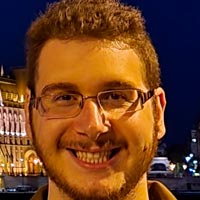 Yoseph Daniel Sabbagh Pastor
Profesor del área de Computación
Professor of the area of Computer Science
Graduado en Ingeniería Informática por la Universidad Europea de Madrid y Máster en Inteligencia Artificial por la UNIR. Especializado en áreas como el Machine Learning, Deep Learning y la Visión Artificial. Ha trabajado como desarrollador de software en ALTEN Spain, donde contribuyó al desarrollo de aplicaciones para el Ministerio de Universidades, utilizando tecnologías avanzadas como Java, Spring y Oracle SQL. Además, ha sido profesor de diversas disciplinas tecnológicas en instituciones como Lifecole, donde impartió cursos de Python, Java y JavaScript. También ha participado en proyectos de impacto social, como el desarrollo de una aplicación de Realidad Virtual para la Fundación ONCE, y ha demostrado habilidades en la gestión de sistemas en la nube y programación multiplataforma durante su experiencia en Londres. Su pasión por la enseñanza se refleja en su rol como profesor particular, donde ha ayudado a estudiantes a dominar la programación y bases de datos, y en su involucramiento en el Open Summer of Code, donde colaboró en proyectos innovadores. Actualmente, es profesor de Python y Big Data en la Universidad Nebrija, además de impartir clases de programación para dispositivos móviles en Android en el Centro de Formación Loeches.
Yoseph Daniel Sabbagh Pastor
Profesor del área de Computación
Professor of the area of Computer Science
Graduado en Ingeniería Informática por la Universidad Europea de Madrid y Máster en Inteligencia Artificial por la UNIR. Especializado en áreas como el Machine Learning, Deep Learning y la Visión Artificial. Ha trabajado como desarrollador de software en ALTEN Spain, donde contribuyó al desarrollo de aplicaciones para el Ministerio de Universidades, utilizando tecnologías avanzadas como Java, Spring y Oracle SQL. Además, ha sido profesor de diversas disciplinas tecnológicas en instituciones como Lifecole, donde impartió cursos de Python, Java y JavaScript. También ha participado en proyectos de impacto social, como el desarrollo de una aplicación de Realidad Virtual para la Fundación ONCE, y ha demostrado habilidades en la gestión de sistemas en la nube y programación multiplataforma durante su experiencia en Londres. Su pasión por la enseñanza se refleja en su rol como profesor particular, donde ha ayudado a estudiantes a dominar la programación y bases de datos, y en su involucramiento en el Open Summer of Code, donde colaboró en proyectos innovadores. Actualmente, es profesor de Python y Big Data en la Universidad Nebrija, además de impartir clases de programación para dispositivos móviles en Android en el Centro de Formación Loeches.
 Manuel Villa Arechaga
Profesor del área de Física Aplicada
Professor of Applied Physics
Licenciado en Ciencias Físicas (especialidad en Estado Sólido) por la Universidad Autónoma de Madrid. Con más de 25 años de trayectoria como ejecutivo senior en banca y finanzas, liderando equipos globales en áreas de mercados e inversión. Amplia experiencia en la creación de nuevos negocios, desarrollo de productos financieros, modelos de valoración, gestión de riesgos y regulación bancaria. Experiencia en la aplicación de nuevas tecnologías —inteligencia artificial y blockchain— a los procesos financieros, la gestión de riesgos y la innovación en nuevos productos.
Manuel Villa Arechaga
Profesor del área de Física Aplicada
Professor of Applied Physics
Licenciado en Ciencias Físicas (especialidad en Estado Sólido) por la Universidad Autónoma de Madrid. Con más de 25 años de trayectoria como ejecutivo senior en banca y finanzas, liderando equipos globales en áreas de mercados e inversión. Amplia experiencia en la creación de nuevos negocios, desarrollo de productos financieros, modelos de valoración, gestión de riesgos y regulación bancaria. Experiencia en la aplicación de nuevas tecnologías —inteligencia artificial y blockchain— a los procesos financieros, la gestión de riesgos y la innovación en nuevos productos.
 Omayra Yago
Profesora del área de Matemáticas
Professor of the area of Mathematics
Graduada en Matemáticas e Informática por la Universidad Politécnica de Madrid. Estudios de máster en Ingeniería Matemática por la Universidad Complutense de Madrid. Actualmente cursando estudios de doctorado en el Programa de Doctorado en Automática y Robótica de la Universidad Politécnica de Madrid, aplicando técnicas de machine learning para el control de distintos sistemas robóticos.
Omayra Yago
Profesora del área de Matemáticas
Professor of the area of Mathematics
Graduada en Matemáticas e Informática por la Universidad Politécnica de Madrid. Estudios de máster en Ingeniería Matemática por la Universidad Complutense de Madrid. Actualmente cursando estudios de doctorado en el Programa de Doctorado en Automática y Robótica de la Universidad Politécnica de Madrid, aplicando técnicas de machine learning para el control de distintos sistemas robóticos.
More Academic Information
Official Degree:Bachelor's Degree in Applied Physics
Those interested in studying and obtaining the Bachelor's Degree in Applied Physics must have:
• Baccalaureate-level knowledge of physics and mathematics.
• Aptitude for logical reasoning.
• Ease of understanding and reasoning about abstract models that generalize the particular aspects of practical cases.
In addition to these aspects, regarding their personal attitude, it is recommended that students:
• Have creativity, imagination and desire for innovation.
• Be organized and methodical learners.
• Be receptive, practical and open to improvising solutions.
• Have the ability for teamwork, communication, be able to lead, as well as a good ability to adapt to different areas.
• Be determined to dedicate themselves to continuous learning, with intellectual curiosity to stay up-to-date on recent advances in science and technology.
The profile of graduates in Applied Physics is that of people prepared to experiment, analyze and apply the knowledge acquired regarding natural phenomena in interdisciplinary teams of companies, industries and consultancies, as well as in R+D+I units.
These profiles will be able to:
• Establish theories to solve science and technology problems using mathematical and computational knowledge.
• Contribute and assume scientific challenges with an open and flexible mentality, both in the academic and professional environment, based on critical reasoning.
• Work in an international and interdisciplinary environment.
• Learn independently or pursue postgraduate studies to delve into and/or specialize in different fields related to physics, computing and engineering.
240 ECTS credits.
Minimum 12 ECTS and maximum 90 ECTS per registration and academic period
Center responsible:Higher Polytechnic School
Branch of knowledge: Engineering and Architecture
Available places: 45
Type of Education: Classroom attendance
Competences
Basic CompetencesThe basic competences for bachelor's degree studies according to RD 1393/2007, of October 29, modified by Royal Decree 861/2010, of July 2, are the following:
- BC1. That students have demonstrated to possess and understand knowledge in an area of study, starting from the base of general secondary education, and is usually found at a level that, although supported by advanced textbooks, also includes some aspects that involve knowledge from the forefront of their field of study;
- BC2. That students know how to apply their knowledge to their work or vocation in a professional way, and possess the competences that are usually demonstrated through the development and defense of arguments and problem solving within their area of study;
- BC3. That students have the ability to gather and interpret relevant data (usually within their area of study) to make judgments that include reflection on relevant issues of a social, scientific or ethical nature;
- BC4. That students can transmit information, ideas, problems and solutions to both specialized and non-specialized audiences;
- BC5. That students have developed the necessary learning skills to undertake further studies with a high degree of autonomy.
In order to establish the general competences of the degree, the general objectives defined in the White Book of the Bachelor's Degree in Physics (ANECA, 2004) have been taken as a reference and adapted.
- GC1. (Know) Demonstrate possessing and understanding, from the base of secondary education, the nature, concepts, methods and most relevant results of the different fields of Physics.
- GC2. (Apply) Know how to apply the knowledge acquired in the definition and approach of problems and in the search for their solutions.
- GC3. (Analyze) Have the ability to gather and interpret relevant data, applying intuition and logical thinking, to reflect on relevant scientific, social or ethical issues.
- GC4. (Synthesize) Synthesize knowledge and skills acquired in the different subjects of the study plan to apply them in specialized projects or in the work environment.
- GC5. (Learn) Develop the necessary learning skills to undertake, with a high degree of autonomy, subsequent specialized studies in the field of physics, or in any other discipline that requires knowledge of physics.
- TC1. Know how to apply analysis and synthesis capabilities.
- TC2. Know how to communicate.
- TC3. Possess basic computer skills.
- TC4. Have skills in searching and managing information.
- TC5. Be able to solve problems.
- TC6. Develop teamwork skills.
- TC7. Develop critical ability.
- TC8. Know how to apply knowledge to practice.
- TC9. Work autonomously.
- TC10. Develop social and labor responsibility.
The list of specific competences for the degree takes as references the White Book of the Bachelor's Degree in Mathematics (ANECA, 2004) and the report “The integration of Mathematics studies in Spain in the European space of higher education”, prepared by the CRUE Mathematics Group, and published as a supplement to the Gazette of the Royal Spanish Mathematical Society (RSME) in its volume 6, number 2 of 2003. They have been adjusted to the profile of the graduate in Applied Physics from the Antonio de Nebrija University, and are the following:
- SC1. Possess knowledge and understanding of physical phenomena, the theories, laws and models that govern them, including their domain of application and their formulation in mathematical language.
- SC2. Know the basic mathematical methods of linear algebra, differential and integral calculus, numerical methods, statistics, differential equations and partial derivatives, complex and transformed variables for the development of theories and physical models and the approach of experimental measures.
- SC3. Understand the role of the scientific method in the discussion of theories and models to be able to propose and carry out a specific experiment, analyzing its results with the required precision.
- SC4. Know how to adequately present the study carried out on a physical problem, including the theoretical description, the processing, analysis and representation of the experimental data, the tools used and the pertinent references.
- SC5. Know the appropriate sources, including scientific-technical literature in English, as well as other on-line resources to take on a Physics paper or study.
- SC6. Know the use of computing and programming techniques, measurement and instrumentation necessary in the application of models to know how to apply them in the design, implementation and execution of a complete instrumental assembly in the laboratory.
- SC7. Draw conclusions from the results of physical models to transfer them to the scientific or professional field.
- SC8. Acquire knowledge of other areas of physics or related disciplines to know how to interpret physical models from these.
- SC9. Carry out, present and defend an individual work that integrates and synthesizes acquired knowledge and skills before a university court.
- SC10. Have a good understanding of the general laws of mechanics, thermodynamics, fields and waves, electromagnetism and optics, to apply them to solving problems in physics.
- SC11. Possess knowledge and understanding of the fundamentals of science and technology of materials, as well as the relationship between microstructure, synthesis or processing and the properties of materials.
- SC12. Understand the physical principles of Newtonian, Lagrangian and Hamiltonian mechanics and their applications in the different branches of physics, as well as the basic principles of the special theory of relativity.
- SC13. Possess knowledge and understanding of the fundamental concepts of Quantum Mechanics, its relationship with Classical Physics, and its application for the understanding of the physics of atoms and molecules, as well as applications to quantum computing.
- SC14. Possess knowledge and understanding of the fundamental concepts of Statistical Physics to relate them to thermodynamics and macroscopic reality, as well as statistics of classical and quantum systems for their application to relevant situations in Physics.
- SC15. Know the physical phenomena involved in some areas at the forefront of science and engineering, or physics itself, to focus towards the professional future.
Admission Requirements
For the purposes of pre-admission and admission, the evaluation of the candidate will be done with a scale ranging from 0 to 10 points, taking into account the following criteria and percentages:
- Academic transcript/certificate of the student's route of origin: 60%.
- Multiple-choice psychotechnical test: Evaluation 5%.
This test consists of a personality assessment test that explores the emotional, intellectual, social and norms and values areas of each candidate student of the Bachelor's Degree in Applied Physics at the Antonio de Nebrija University.
- English level test: : Evaluation 5%.
The English level test consists of a written exam with multiple-choice questions, oral and written comprehension, and use of the language, and lasts 60 minutes. They can be taken face-to-face or online, and are carried out in computer rooms on each campus, with professors from the Institute of Modern Languages.
With the aim of facilitating the acquisition of knowledge in the English language, the Vice-Rector’s Office of Academic Organization and Faculty has made available to its students the "Diploma in English Professional Communication" to guarantee their proficiency in the English language, facilitating, in the future, their integration and professional mobility in any national and international environment.
In order to know the students' real level of knowledge in the English language, the Institute of Modern Languages conducts a language placement test. Based on the results of this test, students are placed at the level that corresponds to them to obtain the "Diploma in English Professional Communication", which students will take simultaneously to the chosen Bachelor's Degree.
It will not be necessary for the candidate to take the language placement test if they submit a document that proves their level of English. The accreditation of the level will be validated through the official diplomas established by the table of certificates accepted by ACLES. Valid for one year.
- Specific test of knowledge about the Bachelor's Degree in Applied Physics Evaluation 10%.
It is a multiple-choice test and consists mainly of specific content related to mathematics at the secondary school level, as well as questions on logical reasoning.
- Personal interview: Evaluation 20%.
As a strategy to know the applicants’ characteristics, the academic department will try to determine if the candidate has enough motivation, training and knowledge, skills, aptitudes, communication skills, extracurricular activities and future interests necessary to be admitted to the Antonio de Nebrija University as a student if the Bachelor's Degree in Applied Physics. Generally, it is the coordinator of the degree who conducts this interview and establishes a first contact with the candidate. In this way, the candidate identifies the coordinator of the degree as a reference even before entering the university.
The Admissions Committee will meet as necessary, and will communicate the result of the admission to the candidate through email, telephone and letter so that they can proceed with the enrollment.
Employability
Career Ooportunties
Graduates in Physics are professionals who are very well prepared and sought after in the working world, to the point that these graduates show an unemployment rate that is one of the lowest of all Spanish degrees. The education received produces versatile professionals, accustomed to the analysis and modeling of complex situations, which gives them a good ability to solve problems of various kinds. Some of the competences of physics graduates that are valued by employers, and also by graduates once they are in the labor market, come not only from the breadth of their knowledge in Physics, but from more cross-cutting aspects, such as: the ability to analyze and synthesize, the possibility of a quantitative approach, of problem solving or the ability for quick self-learning in an even more rapidly evolving technological environment.
Graduates in Applied Physics find employment in industry, laboratories, research centers, and educational institutions:
- Energy production: nuclear power plants, wind energy or fusion reactors.
- Meteorology and the environment: weather forecasting, natural disaster prediction or meteorological satellites.
- Design and development of new materials: nanotechnologies, superconductors or semiconductors.
- Optics: fiber optics, artificial vision, lasers or image processing.
- Biophysics: radiation protection, magnetic resonance, effects of electric and magnetic fields in living organisms or drug design.
- Informatics and computers: robotics, processor design, programming of high security systems or communications networks.
Nebrija University and its Higher Polytechnic School have more than 3,500 collaboration agreements with the best companies and institutions in each sector for training internships. Below is a selection of companies with a current agreement that could incorporate students of the Bachelor's degree in Applied Physics, among others:
Employability recognized in the Rankings
The commitment of Nebrija University to the academic requirement, training in leading companies and institutions, innovation in multidisciplinary programs and international projection, places the University in the top positions of the most important rankings.
The International Ranking QS Stars awards Nebrija University the maximum score in the quality and satisfaction of students in teaching, employability of the graduates and the internationalization of the institution.
The national rankings also recognize Nebrija University as the first Spanish university in teaching and second in employability, highlighting its performance in research, knowledge transfer and internationalization.
The Bologna Declaration formalized the principles on which the European Higher Education Area should be based: quality, mobility, diversity, competitiveness and employment growth.
From this, Nebrija stands as an academic model of reference, educating students with excellent individual behavior, interaction with their environment and motivated by and for constant and continuous training. The Nebrija Institute of Professional Skills works every day to achieve the differentiation of our students through the development of attitudes and skills.
The main objective is for students to achieve the best of themselves through the development and empowerment of their personal skills and resources through personal self-knowledge.
In addition, some of the professional skills that are worked on within the three seminars are those related to interpersonal skills and active communication skills and negotiation, indispensable for our students to know how to transmit ideas, to argue them, to provide information and opinions in an adequate, clear and convincing way.
Within what will be their work performance, other aspects such as teamwork, conflict resolution and project management ability will be worked on.
In the third block, skills worked on are those aimed at increasing the student's employability. They will work with tools and techniques for job searching, and perform tasks that achieve in the student a greater use of their personal skills.
For all this we have currently active experts in selection of people, professionals dedicated to personal and professional training and professionals dedicated to the world of communication and the arts.
In this way, and in a complementary way to his/her specific training, we help the student create a differentiating pattern in the social and business environment in which he/she will be immersed when he/she finishes his/her studies.
International
Some of the Universities with which Nebrija University has established agreements:
NOTE: The destination universities, offered by degree, may vary depending on the International Mobility Program. To obtain more up-to-date information, students can consult the online information at the International Mobility Program.
Several universities have special academic or linguistic requirements. For more information, please see the following link.
Certain destination universities may require the submission of a portfolio to request admission as an exchange student. In this case, the student must request advice from the Academic Department to prepare it.
Life university in Applied Physics
Visit all the Activities of the Higher Polytechnic School
Mathematics and Physics in the digital age
Session that addressed the challenges and opportunities of mathematicians and physicists in the digital age, interdisciplinarity, innovation and technology, as well as the bachelor's degrees in Applied Mathematics and Applied Physics (and its double degree) launched by the Nebrija University's Higher Polytechnic School.
Welcome Sessions for the 2022-2023 academic year
Nebrija University held Welcome Sessions aimed at new face-to-face bachelor's degree students for the 2022-2023 academic year.
The sessions took place on September 7, 8 and 9 and in them the students got to know the University, professors, departments, facilities and colleagues who will be part of their university life.
Investiture ceremony of Carlos López-Otín as doctor honoris causa
Nebrija University named biochemist Carlos López-Otín a doctor honoris causa last Friday, November 18, in a ceremony that took place in the Conference Hall of the Madrid-Princesa Campus, and had Cristina Garmendia, president of the Cotec Foundation, PhD in Biological Sciences and former Minister of Science and Innovation, as the sponsor.
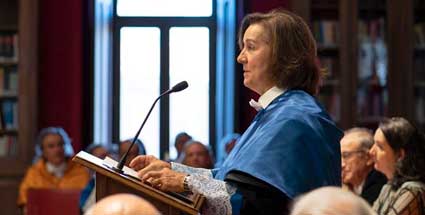
Pilar Vélez proclaims her passion for mathematics at the official opening of the 2022-2023 academic year
La pasión tiñó la atmósfera del acto de apertura del curso académico 2022-2023 en el Campus de Madrid-Princesa de la Universidad Nebrija. Estuvo presente en los gestos y en las palabras de los discursos de las personalidades académicas y en el título de la lección inaugural –Pasión por las matemáticas. De los grandes descubrimientos al descubrimiento de teoremas– pronunciada por Pilar Vélez Melón, catedrática de Matemáticas y directora del grupo de investigación Matemáticas y sus aplicaciones.
Ver Noticia
